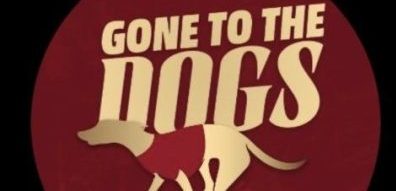1997 Night Trooper beats Blue Murlen in the Reading Masters Final. Both dogs finish lame and miss the English Derby.
1975 Mount Vernon track in Scotland offer an unusual first prize for the winner of the Easter Handicap, a four day trip, for two people, to Dublin.
1960 The NGRC agree to meet with the National Greyhound Racing Society to discuss Frances Chandler’s speech at the Gymcrack dinner. In it, she asked for greater standardisation at all 65 NGRC tracks. They eventually agree to implement new rules on starting procedure but not on standardisation of equipment due to the cost.
1983 The English Derby attracts a record number of entries – 218.
1979 Bord na gCon’s Pat Holland agrees to accept Derby entries on behalf of GRA due to an on-going postal strike in Ireland.
1968 Portsmouth owner Les Smith was having a bad day. Just as he was about to go racing, the lights went out. He spent ages finding tools and fuse wise. On went the lights, and then off again. He returned to the electrics, and changed the fuse for a second time, now furious that it was now to late to go racing. Suddenly the phone rang. It was Charlie Curtis on the phone. He had a new dog coming into the kennel, was Les interested? What’s it called asked the bad tempered owner. “Fuse Box” chirped Charlie. How could he possibly say no?
1976 May Westpark Mustard whelps her first litter of pups, four dogs and four bitches, at Dave Murphy’s kennels at Bantry, Co Cork, the sire is Ritas Choice.
1997 Sheffield announce that they are to dispense with the Sumner hare and switch to the Swaffham. The track also plan to build new racing kennels with track trainers Sue Robinson and Philip Woodward both expected to leave.
1959 Wimbledon are delighted with a new type of racing jacket made from nylon. They stay cleaner and do not become as sodden as the traditional woollen type.
1960 The Reading grader bamboozles the local bookies so often that they have taken to chalking up ‘4-1 the field’.
2010 Ian Walton, the assistant operations manager at Sunderland will take over the top job at Newcastle following the retirement of Terry Meynell.
1947 Manchester White City racing manager Mr E Dickinson is so confident in the ability of his local tracker Lacken Invader, that he arranges an open race to enable the best dogs in the area to take him on. When the race fails to fill, Dickinson arranges a “six dog challenge” with £200 to the winner – that’s an equivalent of £6,540 index linked. Although Dickinson plans free entry for all the runners, he is forced to charge entry fees according to NGRC rule 107 which insists on a minimum of 10 shillings entry fee for all non-graded races.
1962 Catford introduce an entirely new concept to totalisator betting – the win jackpot. It will be staged over four legs with punters able to exchange winning tickets for bets in subsequent races. It is an enormous success with attracting a pool of over £1,500. Nine winning tickets are each worth £145 (index linked to roughly £2,544).
1997 Shelbourne boss Noel Hynes announces that crowds are up by 57% for the first four months of the year. He says: “Our average crowd on a Wednesday and Thursday is between 700-1,000. Saturday’s is between 1,500 and 2,000.”













